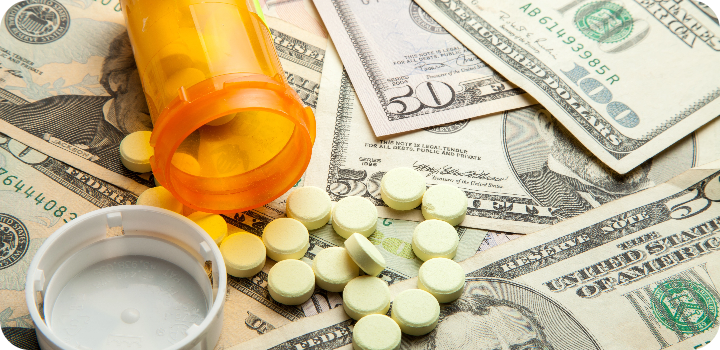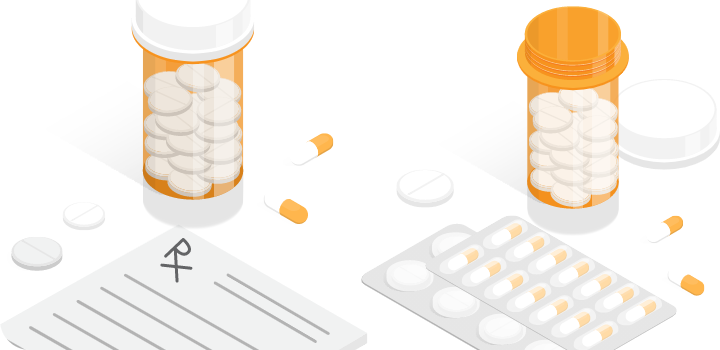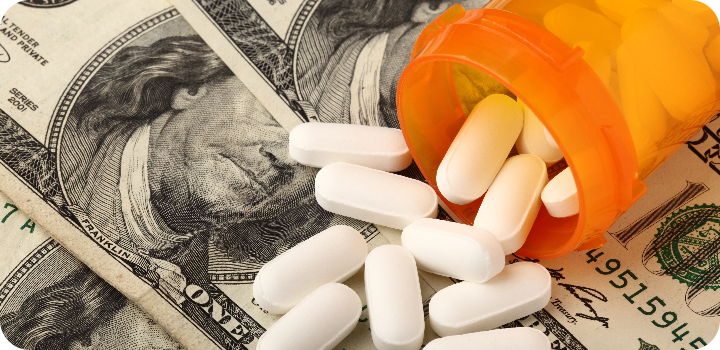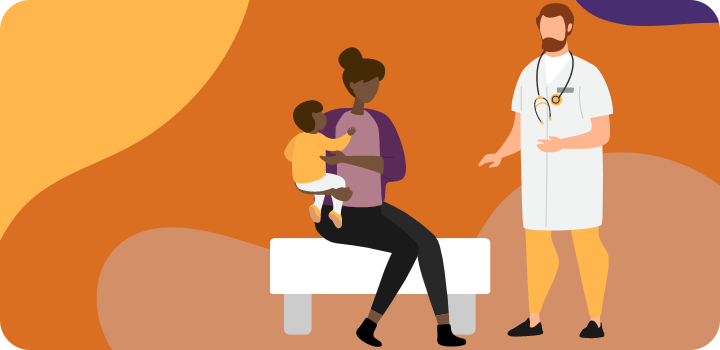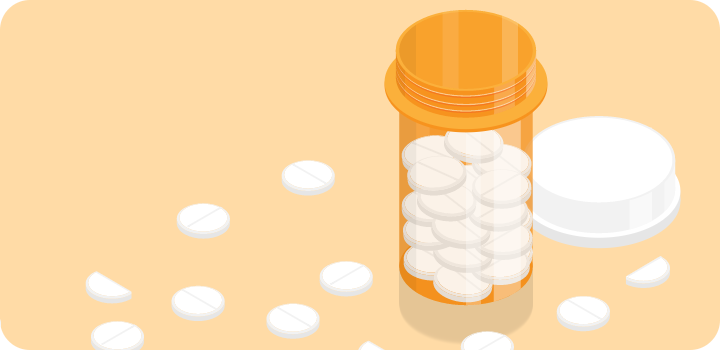Understanding a Drug’s Journey to Generic Production
July 18, 2023 | 3 minute read
In today’s healthcare landscape, the rising costs of prescription medications have become a significant concern for many Americans. Generic medications offer a more affordable solution but are often misunderstood and undervalued. By understanding the journey of a drug from research to its availability as a generic medication, consumers can gain insights into why generics are more affordable without compromising on quality or effectiveness.
The Research Phase
The development of a new medication begins with extensive research conducted by pharmaceutical companies, universities, and research institutions. This phase involves identifying potential drug candidates, conducting laboratory tests, and evaluating their efficacy and safety profiles. The research process typically takes several years and involves significant financial investments.
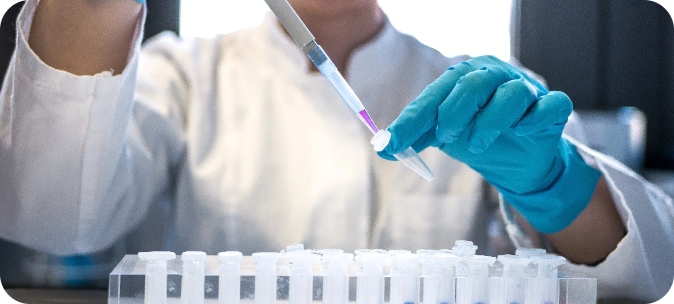
Preclinical and Clinical Trials
Once a potential drug candidate is identified, preclinical studies are conducted to assess its safety and effectiveness in biosimilar models. These studies help researchers understand how the drug is processed in the body, toxicity levels, and potential side effects.
If the preclinical results are promising, the drug progresses to the clinical trial phase. Clinical trials involve human volunteers and are conducted in multiple phases, each designed to evaluate the drug’s safety, efficacy, and optimal dosage. These trials are strictly regulated and require strict adherence to ethical guidelines. The entire clinical trial process can take several years.
Patent Protection
To incentivize pharmaceutical companies to invest in drug research and development, governments grant them exclusive patent rights for a specific period; patents typically last for 20 years from the date of filing. During this time, the company has the sole right to manufacture and market the drug. This exclusivity allows the company to recover its research and development costs and make a profit.
Branding and Marketing
Once a drug receives regulatory approval, the pharmaceutical company brands it and markets it under a proprietary name to distinguish the drug from others on the market.
Generic Drug Approval
When a drug’s patent expires, other pharmaceutical companies can seek approval to produce generic versions of the medication. Generic manufacturers are required to demonstrate that their product is bioequivalent to the branded drug, meaning it contains the same active ingredient and is absorbed in the body at a similar rate.
Contrary to misconceptions, generic medications are just as safe and effective as their branded counterparts. It’s important to note that all drugs, whether branded or generic, must meet the same regulatory standards for safety, efficacy, and quality. The generic approval process requires comprehensive evidence to demonstrate that the generic drug is a suitable alternative to the brand-name drug.

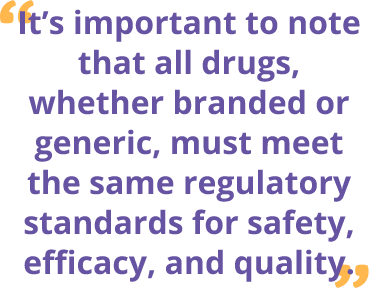
As consumers, it’s essential to be informed about generic medications and recognize their value in improving healthcare accessibility and affordability. It’s our commitment to providing affordable medicine for all that led DiRx to leverage our long-term relationships with the generic manufacturers, and experience in the industry, to bring FDA-approved generic medications directly to you - at a fraction of the cost.
Remember, if you have any specific concerns or questions about medications, it’s always best to consult with your healthcare provider or pharmacist, to provide personalized advice based on your unique circumstances.
Search for your medicine

EUTHYROX®, a branded
Levothyroxine is also available.
Tap here to know more
Buying Kyzatrex for the first time?
Use code FREETRIAL to get a 1 month supply of Kyzatrex for FREE




